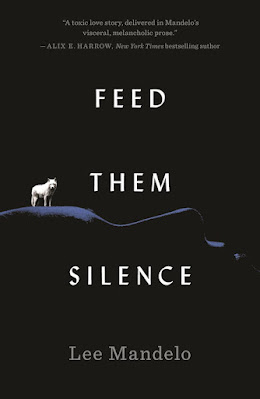Amulya Malladi
Amulya Malladi is the bestselling author of eight novels, including The Copenhagen Affair, A House for Happy Mothers, and The Mango Season. Her books have been translated into several languages, including Dutch, French, German, Spanish, Danish, Romanian, Serbian, and Tamil.  She won a screenwriting award for her work on Ø (Island), a Danish series that aired on Amazon Prime Global and Studio Canal+. Currently living in California, she is a Danish citizen who was born and raised in India.
She won a screenwriting award for her work on Ø (Island), a Danish series that aired on Amazon Prime Global and Studio Canal+. Currently living in California, she is a Danish citizen who was born and raised in India.
Malladi's new novel is A Death in Denmark.
My Q&A with the author:
How much work does your title do to take readers into the story?Visit Amulya Malladi's website.
I’m one of those writers who needs the title before I can start writing a book. A Death in Denmark was called Sinnerman when I started working on it. Since my protagonist Gabriel Præst is a blues musician, he plays the guitar, and is a fan of Nina Simone, this title fit well.
However, my editor wondered if people would be expecting a serial killer novel instead of the political mystery and thriller the book is. We went a few rounds and decided that A Death in Denmark said everything we needed it to say. I love the title. It’s simple and draws the reader in immediately: a murder took place in Denmark…don’t you want to know more?
What's in a name?
When I first started to write this book, my protagonist was called Bo Baptista. But as I started to think about him more and more, the name started to feel wrong. I think I went a little biblical with the name when I finally came to it. I thought of my PI as someone who takes confessions and hence the last name Præst. Gabriel, just sort of slid into the name, I think inspired by Archangel Gabriel, or Gabriel Byrne who is one of my favorite actors.
Names are a mystery to me. I have no idea why something feels right or wrong—and I usually go through a lot of “baby names” websites to settle into one that I know will embody my character.
How surprised would your teenage reader self be by your novel?
My teenage self will absolutely not believe I wrote a book set in Denmark about World War II in first person from the perspective of a middle-aged white Danish man. None of these things were my reality growing up in India. I started to write when I was 11 years old, but even then, I wrote from a female perspective. I alsoknew nothing about Denmark and World War II was all about how India supported the British to get our freedom.
Do you find it harder to write beginnings or endings? Which do you change more?
Writing is hard work. I find it all hard. Most of the time it’s hitting the wall in the middle that is the most difficult. I edit…a lot, so everything can change based on where I’m at.
Do you see much of yourself in your characters? Do they have any connection to your personality, or are they a world apart?
Sometimes they are, sometimes they are not. In A Death in Denmark, Gabriel likes good food and wine as I do. But he is a musician and I’m tone deaf. He loves philosophy, which is a lot like my younger son who also has a penchant for existentialism; and Søren Kierkegaard and Jean-Paul Sartre as my protagonist does. Characters are an amalgam of people we know or people we want to be—they are authentic to who they are, which means they’re not like anyone else I know.
What non-literary inspirations have influenced your writing?
I am inspired by so many things. With A Death in Denmark, Nina Simone and her music were in the background as I wrote. My love for good food and wine come through as does my love for Copenhagen. I am intrigued by learning from history, and so a lot of the World War II facts that found their way into my book come from my curiosity.
My Book, The Movie: A Death in Denmark.
The Page 69 Test: A Death in Denmark.
--Marshal Zeringue












